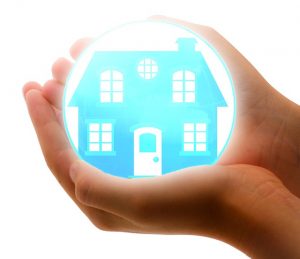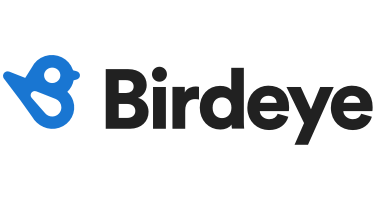Homeowner’s Insurance for Injuries
Posted on Monday, September 28th, 2015 at 6:12 pm
 Last week, Lawrence & Associates Accident and Injury Lawyers, LLC posted about automobile insurance coverage. In a sense, that’s the easiest type of coverage to understand from the perspective of someone who has been injured. If you were in a car accident, it’s obvious that you’d look into coverage from your car insurance policy and/or the other driver’s policy. The devil is in the details, but at least everyone knows where to look for coverage.
Last week, Lawrence & Associates Accident and Injury Lawyers, LLC posted about automobile insurance coverage. In a sense, that’s the easiest type of coverage to understand from the perspective of someone who has been injured. If you were in a car accident, it’s obvious that you’d look into coverage from your car insurance policy and/or the other driver’s policy. The devil is in the details, but at least everyone knows where to look for coverage.
Homeowner’s insurance (or its commercial cousin, general liability premises insurance for business owners) is an often overlooked source of insurance coverage for many types of injuries, and most of our Northern Kentucky clients don’t know they have the option of accessing homeowner’s insurance for an injury unless we bring it up first. Again, the devil is in the details and the exact language used in your homeowner’s policy can alter the availability of money for any particular injury.
There are several types of injuries that are usually covered by homeowner’s insurance:
Injuries Due to Slips or Falls on Property
The most common type of injury covered by homeowner’s insurance is a slip or fall. In Kentucky, slip and Fall injuries are divided up based on: 1) whether the injury happened to you, a member of your family who lives in the home, or someone invited to the home that does not live there, and; 2) whether the slip happened because of some artificial reason, natural reason, or for no reason at all.
If it is you or a member of your family living in the home, your homeowner’s policy probably doesn’t cover the injury. Homeowner’s policies are meant to cover your for liability to others, not liability to yourself. If you fall and injure yourself on your own property, health insurance should cover the medical bills and any disability policy may cover lost wages.
For anyone else that slips and falls on your property, the insurance company will investigate whether the injury was due to any liability on the part of you, the homeowner. A fall that happens for no reason at all does not mean you are liable for it (although many homeowner’s policies will have approximately $5,000 in “medpay benefits” that are no fault and designed to go toward medical bills for the injured person). A fall that happens for an “artificial” reason – meaning some manmade change to the land or structure – can result in liability if the manmade change was made negligently, or if the guest was not warned and could not have foreseen the danger of the manmade change. The traditional example of a manmade change that can lead to this type of liability is a well that has been covered up and which cannot be seen until stepped on, at which point the guest falls through.
Injuries caused by natural changes, such as the accumulation of snow and ice in the winter, used to be routinely denied by insurance companies. Recently, however, they became treated more like artificial changes in Kentucky law. In 2015, the Kentucky Supreme Court issued a ruling that said juries should determine whether falls due to these changes at businesses should result in liability based on a number of factors, such as warnings and foreseeability. Since this is effectively the same way artificial changes are treated, it is reasonable to assume that natural changes will also be covered by homeowner’s policies more frequently in the future.
Injuries that Occur Away from the Home
Some types of injuries are covered by homeowner’s insurance even if they don’t happen on the homeowner’s property. This is generally because some personal property of the homeowner was misused and this caused an injury. For example, dog bites are generally covered regardless of where they happened. If a gun misfires and strikes a pedestrian, the homeowner’s policy will cover. Many ATV accidents are covered under homeowner’s policies because the ATV is personal property that is generally not otherwise insured.
The most important thing to remember is that the insurance company has to be told what personal property is in the house – or at least have a reasonable expectation that a certain type of personal property is in the house – before the policy will cover the injury. For example, if you tell the insurance company that you don’t have a dog and don’t have a gun, the dog bite and gunshot will not be covered. This area of coverage is fraught with denials and many times the insurance company doesn’t cover a dime simply because they aren’t asked to, or because their initial denial isn’t followed up on. Remember to ask an attorney for help if your insurance company refuses to pay.
Attorneys and Friendly Lawsuits
Anything beyond the most basic of homeowner’s insurance injury claims often requires an attorney, because insurance companies love to deny these things. The insurance policy is a contract, and attorneys are required to become familiar with contracts during the course of their training. If the insurance company won’t cover you, make sure you have an attorney look over your policy before you give up.
Also, insurance companies often don’t have to pay out on these claims because friends feel bad for making a claim against friends. Think about it: if someone was injured at your house, odds are it is a friend or family member. You rarely invite total strangers over. But if you are paying an insurance company a premium every six months for homeowner’s coverage, and this coverage doesn’t apply to your live-in family members, who do you expect it to apply to? It is supposed to cover friends and extended family! If they don’t make a claim when they are hurt, who will? There is a such thing as a friendly claim or lawsuit, and two friends or family members should not feel guilty if one has to make a claim against the other’s policy.
At Lawrence & Associates Accident and Injury Lawyers, LLC, we know insurance policies and how to make them work for you. We are Working Hard for the Working Class, and we want to work for you. Call today for a free consultation!










